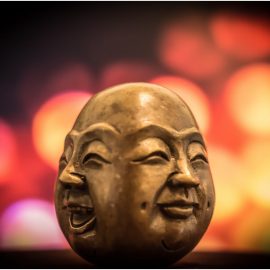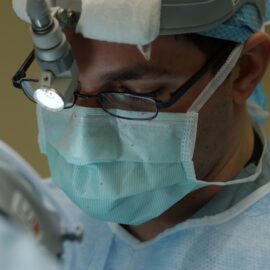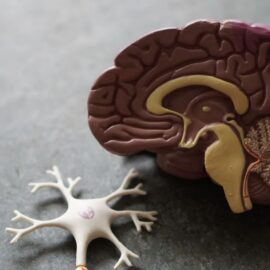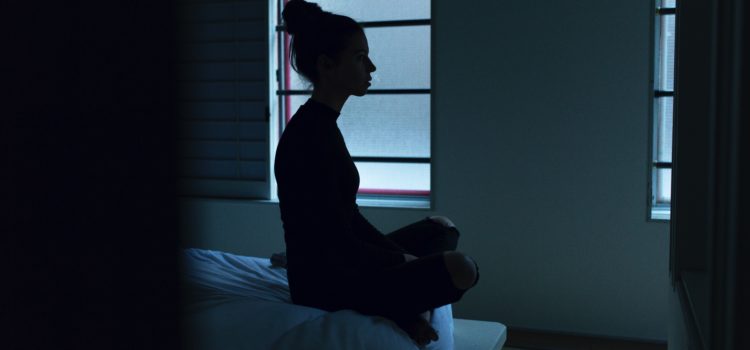
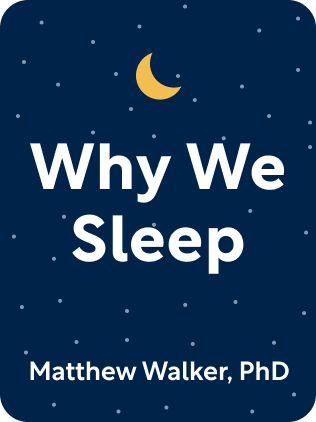
This article is an excerpt from the Shortform summary of "Why We Sleep" by Matthew Walker. Shortform has the world's best summaries of books you should be reading.
Like this article? Sign up for a free trial here .
Is there such a thing as death from lack of sleep? How does it work?
Research suggests that death from lack of sleep can occur in an acute manner in about 14 days—around the same lenghth as food deprivation. In the long term, death from lack of sleep may occur from chronic lack of sleep and associated health risks.
Death From Lack of Sleep
Many people wonder: Can I die from lack of sleep? Gravely, sleep deprivation can directly cause death.
In rodent studies, REM sleep deprivation causes death over the same period as food deprivation – about 15 days.
- NREM sleep deprivation causes death too, after 45 days.
- Sleep-deprived rats lose body weight, despite eating more. They can no longer regulate their body temperature, causing intense metabolism.
- The immune system is destroyed, causing widespread skin sores.
- The cause of death is universally septicemia or a systemic bacterial infection, caused by the gut microbiome (normally held in check by a functioning immune system).
In humans, sleep deprivation leading to death is uncommon (possibly since the natural urge to sleep is so strong). But lack of sleep could contribute to more acute causes of death like seizures, and thus be misreported.
The strongest evidence that humans can die from sleep deprivation comes with a very rare inherited condition, fatal familial insomnia. In this disease, prion proteins cause the thalamus to be destroyed, and the patient is totally unable to sleep, even with heavy sedatives. Severe disability sets in (dementia, speech disorders), and death occurs within 10 months. There are no treatments or preventions.
- This disease is autosomal dominant and found in only 40 families worldwide.
So if you ask, “Can I die from lack of sleep?” the answer is yes.
How Sleep Deprivation Harms the Body
In addition to the damage it causes to the brain, sleep deprivation disrupts the normal function of many physiological processes, likely contributing to chronic diseases. In this chapter we’ll cover a bevy of health issues associated with sleep deprivation.
At a high level, sleep deprivation of even just 1-2 hours triggers the sympathetic nervous system (fight or flight response) and disrupts hormonal balances. This also implies that sleep is necessary for the normal maintenance of physiology.
Shortform Caveat
Many of the population studies cited in Why We Sleep are correlational – e.g. people who sleep less are more likely to have heart disease, after controlling for many other factors. But the causation is unclear – some other factors that predispose people to get heart disease (like a high baseline level of stress) could also reduce sleep.
To address this, the experimental studies cited attempt to link lack of sleep to a middle physiological state, which itself is causative for the disease. For instance, lack of sleep increases blood pressure, which the medical consensus believes is causative for heart disease.
Ideally, the “smoking gun” experiment would be to randomize people into normal-sleep and low-sleep groups for years, then observe the rate of disease. However, this is impractical (it’s hard to run very long studies like this and impossible to double-blind) and likely unethical (if low sleep is already believed to cause severe disease).
Diseases and Sleep Deprivation
The question, “Can I die from lack of sleep?” isn’t just about immediate death. Some people wonder if a lack of sleep causes deadly diseases. While there’s a lot that remains unknown about sleep, death from lack of sleep can happen.
Heart Disease
Sleep deprivation has a number of effects related to cardiovascular disease:
- It activates the sympathetic nervous system, leading to
- Increased heart rate
- Increased vasoconstriction -> increased blood pressure
- Increased cortisol (stress hormone)
- Increased atherosclerosis (esp of coronary arteries)
- Through hormone signaling, it decreases HDL (good cholesterol) and growth hormone (promotes recovery of blood vessel endothelium)
A population study showed that shorter sleep was associated with a 45% increased risk of developing heart disease.
An interesting finding: daylight savings time is a natural sleep experiment that typically increases or decreases sleep by 1 hour. When the clock moves forward and the population gets 1 less hour of sleep, there is a significant spike in heart attacks and number of traffic accidents.
Diabetes
Sleep deprivation reduces insulin responsiveness, which causes hyperglycemia.
- In an experiment, after 4 hours of sleep a night for 6 nights, subjects were 40% less effective at absorbing a standard dose of glucose.
In a population study, those sleeping < 6 hours a night showed higher rates of T2D (after controlling for body weight, alcohol, smoking, and other factors).
Obesity, Weight Gain
As it relates to weight, sleep deprivation:
- Hormonally, reduces leptin (the hormone that makes you feel full) and increases ghrelin (the hormone makes you feel hungry). It becomes harder to feel satisfied after eating.
- Increases endocannabinoids (reduces pain sensation but increases appetite; also released in runner’s high), which increases eating
- Makes you feel lethargic, which makes you less likely to exercise
- Disrupts the linkage between the rational prefrontal cortex and the primal appetite center in the brain (similar to emotional control in the last chapter), so it becomes harder to regulate your eating
In an experiment, subjects were randomized into a normal 8-hr sleep group, and a low 4-hr sleep group. Both groups were carefully monitored and controlled for physical activity.
- The low-sleep group ate 300 more calories each day, even after just 4 days of sleep deprivation.
- The low-sleep group was also more prone to overeating each meal, consuming 330 more calories in snack foods after a meal.
One might argue that decreased sleep naturally causes more calorie burn, but an all-nighter actually consumes only 147 more calories than sleeping. Sleep is metabolically more intense than you might guess.
Finally, if you’re losing weight and under sleep deprivation, the shift of where you lose the weight from differs. When sleep-deprived, 70% of weight loss comes from lean body mass like muscles, compared to under 50% with plentiful sleep. Death from lack of sleep can be a slow process toward poor health.
Reproductive System
In males, sleep deprivation decreases testosterone, testicle size, sperm count.
- Experimentally, the is acute – 5 hours of sleep for one week “ages” a man 10-15 years by testosterone
- Beyond libido, testosterone also governs bone density and muscle mass.
In females, sleep deprivation reduces follicular-releasing hormone (necessary for conception), increases abnormal menstrual cycles, and causes more issues with infertility.
Your face is rated as less attractive and less healthy after one night of short sleep. So there might be something to the idea of “beauty sleep.”
Immune System
Sleep deprivation reduces your ability to ward off infectious disease, increasing possibilities of death from lack of sleep:
- In an experiment, subjects exposed to low sleep over 1 week were 50% likely to develop a cold when exposed to virus, vs 18% in normal-sleep
- Sleep deprivation reduces the immune response to flu vaccines by over 50%
- Sleep deprivation reduces circulating levels of natural killer cells
Cancer
Sleep deprivation increases inflammation, which increases cancer severity:
- Promotes angiogenesis, or blood vessel development
- Promotes lability of cancer cells, leading to metastasis
- Downregulates M1 macrophages and upregulates M2 macrophages, both changes increasing cancer risk.
Experimental evidence:
- Experiments in mice show an increase in speed and size of cancer growth under sleep deprivation.
- Population studies show a link between nighttime shift work and risk of cancer (common occupations include nurses and pilots).
- In response, Denmark now pays worker comp to women who developed breast cancer after doing night-shift work in government-sponsored jobs
Aging
Telomeres are a component of DNA, and they get shorter with aging. Sleep deprivation has been shown to hasten telomere shortening, thus implying an increasing in aging.
Sleep Torture
The fact that sleep deprivation is seen is torture proves that death from lack of sleep is a known issue. Sleep deprivation torture is recognized by many countries as unethical, but still practiced by others (like the US in Abu Ghraib).
According to the author, sleep deprivation doesn’t even work well. It reduces the quality of information (harms memory recall) and increases the risk of lying and false confessions in a desperate hope to get some sleep.
Death from lack of sleep is a serious matter. While acute lack of sleep can cause immediate death, be aware that death from lack of sleep can also happen over a lifetime of poor sleep habits, and the associated health risks.

———End of Preview———
Like what you just read? Read the rest of the world's best summary of Matthew Walker's "Why We Sleep" at Shortform .
Here's what you'll find in our full Why We Sleep summary :
- Why you need way more sleep than you're currently getting
- How your brain rejuvenates itself during sleep, and why nothing can substitute for sleep
- The 11-item checklist to get more restful sleep today

